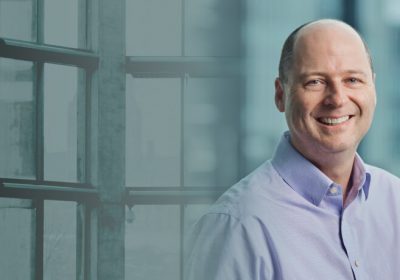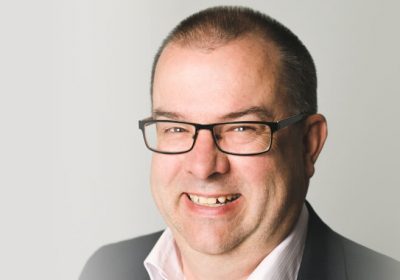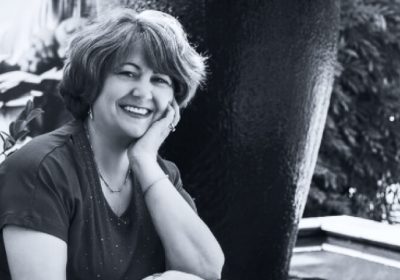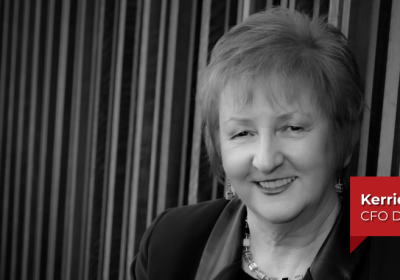
- Author: Johanna Leggatt
- Posted: August 11, 2021
‘You have a voice, so use it’
CFO trailblazer Sara Watts on the tough reality of NED roles, the challenges facing modern CFOs, and why women often make great leaders
When Sara Watts was appointed the group financial controller for IBM Australia and New Zealand, her boss gave her a crucial piece of feedback that helped shape the rest of her career.
“He said to me, ‘Sara you seem a bit tentative, and I wasn’t expecting that of you, so what is going on?’” she recalls.
“I said that I was not quite sure what I can and can’t do in this role, so I am just struggling a bit with what the boundaries are.”
He rolled his eyes and he said to her: “Sara, do the job like you think you should and if you do something stupid, I’ll ask what on Earth were you thinking and I’ll expect you to tell me’.”
The advice, while simple, was also life changing. Watts went on to become the first woman to assume the CFO role at IBM Australia and New Zealand, with a team of over 600 people spread across Australia, New Zealand and the shared services function in Malaysia.
“It was liberating, it was a gift for him to give me that advice,” she says.
“I didn’t want to get anything wrong — so by trying not to get it wrong, I was getting it wrong — and yet a man would never have been hesitant, he would have just been in there doing what he thought was right.”
Picking the right posts
Watts left her post at IBM seven years ago to carve out a formidable career as a non-executive director at English literacy education platform, LiteracyPlanet; not-for-profit social services organisation, Uniting NSW.ACT; industrial minerals and technology company, Syrah Resources; and biotech company, Trajan Scientific.
She is also trustee and chair of the audit and risk committee at The Australian Museum and chairs the audit committee at Victoria’s Independent Broad-based Anti-Corruption Commission (IBAC).
“I wanted to use the skill and experience I had the good fortune of gaining at IBM and expose it to organisations that would not usually have leading-edge thinking,” she says of her decision to pursue a NED career.
”If you get the governance right, then you can get out of the way and let the organisation achieve its strategy.”
While her NED portfolio is a diverse mix of sector and organisational type, Watts has a highly specific set of criteria she uses to evaluate whether she would be a good fit for a board post.
“I ask myself whether I can contribute immediately and whether I will be on a steep learning curve because that is what energises me,” she notes.
Watts also asks if there some social purpose to the company. Is there something in their value set that aligns with hers?
“And finally, I ask if I can I have some fun doing this,” she says.
“That is equally important.”
Do you really want the NED career?
When aspiring non-executive directors ask Watts for advice on joining a board, her first instinct is to ask them why.
“I say to them ‘are you sure you want this’?” Watts says.
There is an undeniable prestige to a board post but, as Watts points out, the roles also come with considerable responsibilities and stresses.
“In a board role, your liability as a director is huge, and you’re always working on the business not in the business,” she says.
“This means that you’re not the one working on the P&L or consolidating the accounts, and directors must be prepared to let management do that.
“It’s a very different role on the governance body versus the executive.”
It’s also worth remembering that a full-time NED career is not necessarily lucrative — unless you are on a top-paying public company board — and they can be lonely paths to tread.
“When you go to work you have an in-built community around you, and you are surrounded by people you can bounce ideas off,” Watts says.
“When you’re effectively a sole practitioner, which you are as a NED, then you have to create those opportunities and networking because so much of what happens occurs in an informal way.”
Advantages women bring to CFO roles
Watts is a firm believer that when it comes to the multitude of demands on modern-day CFOs, women offer inherent strengths.
“I think, by and large, women listen and collaborate better,” she says.
“We bring different parts of the organisation together to find a solution and we’re prepared to admit to not knowing everything but can work together to find a solution.”
These traits are well suited to the role of CFO, which is more grit and hard graft than glory.
“We don’t own the P&L, we report on it,” she says.
“We also have to influence people, and find ways to grow revenue, while minimising cost, identifying risk, and exploiting opportunity.
“I think women are taught to do that either deliberately or inadvertently by the way we were brought up.”
As a trailblazer in the male-dominated technology sector, Watts believes it’s vital to mentor other women, which she does through the Financial Executives Institute and the McCarthy Mentoring program.
“I think we have an obligation to support, sponsor, and develop the women that are coming after us,” she says.
“For every door that I open, I want to make sure that I’m keeping it open.”
It’s been a rich and full career path so far, but Watts admits to having one key regret.
“I wish I believed in myself more early on in my career and that goes back to the imposter syndrome I once felt,” she says.
A few years ago, she was asked to write a letter to her younger self as part of an International Women’s Day project, and her missive focused on reassuring her younger self that she was much more competent than she thought.
“I told my younger self to listen to the people who are telling you that you’re doing a good job, and don’t forget to have some fun along the way,” she recalls.
“And be bold, be brave. You have a seat at the table; you have a voice, so use it.”








